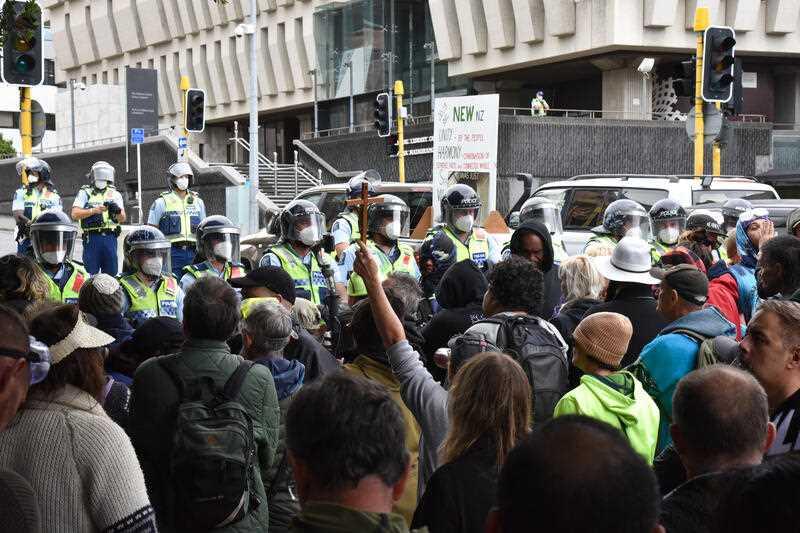New Zealand police have dispersed anti-mandate protesters who had set up an encampment outside the country’s parliament, towing away vehicles and making dozens of arrests.
Following three weeks of confrontations between the protesters and police at parliament, hundreds of officers in riot gear stormed the encampment on Wednesday morning, tearing down tents, using pepper spray and sponge bullets to disperse the protestors. They also towed away up to 50 vehicles and made 38 arrests.




